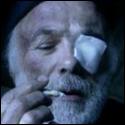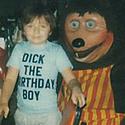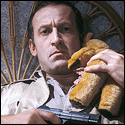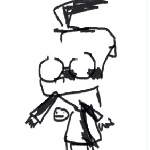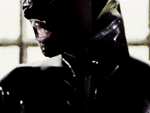|
I think even one line of added dialog about Doc's earlier love life would have made his turnaround more palatable. Even as is it's not inconsistent, just unexpected.
|
|
|
|

|
| # ? Apr 25, 2024 18:07 |
|
checkplease posted:Was that mall for the chase supposed to be underground Atlanta? I was having trouble recognizing it, but may have just been some non-Atlanta location also. Krispy Kareem posted:That was Lenox mall. I think near the food courts. Nah, that's the mall at Peachtree Center. I've eaten enough fast food there during multiple Dragon*Cons that I'd recognize it for sure. Plus it's a lot closer to where everything else in that scene is happening than Lenox, although still pretty far to run to be believable if you know the area.
|
|
|
|
Xander B Coolridge posted:I think even one line of added dialog about Doc's earlier love life would have made his turnaround more palatable. It's not the turnaround inherently that bothers me; I could easily see a version where, see, Buddy had a gun to Baby's head, and Doc turned and saved him because despite it all, he's got a soft spot for the kid and doesn't want to see him killed. But this was a turnaround after a turnaround after a turnaround, with no real emotional logic governing any of his choices.
|
|
|
|
Z. Autobahn posted:It's not the turnaround inherently that bothers me; I could easily see a version where, see, Buddy had a gun to Baby's head, and Doc turned and saved him because despite it all, he's got a soft spot for the kid and doesn't want to see him killed. But this was a turnaround after a turnaround after a turnaround, with no real emotional logic governing any of his choices. I actually don't think Doc's threatening Debra was ever meant to be sincere. I read it as a hollow threat that he knew Baby would bend easily to. He may have had a soft spot for him but he was still a criminal willing to say what he could to get what he wanted.
|
|
|
|
He wanted Baby to repay his debt. When that was done he was too valuable to let go and made a business decision to keep him on, without taking his cut anymore (since he has a soft spot for him). He makes some insincere threats to make sure he gets what he wants. When he has nothing to lose and zero chance of carrying on his business as normal he let his soft spot get the better of him. I don't see the inconsistency.
|
|
|
|
The moral stance of the movie is basically "there are consequences to your actions whether you're the one pulling the trigger or not. You can't just hide in your own little world with your headphones on and not be a part of the evil poo poo happening here." With regards to Doc, you get the sense that he has never had to make an emotional decision like that in regards to his crew because he hires nothing but scumbags. So he waffles between his desire to pull off the heists at all costs and his paternal instincts towards Baby. He's a conflicted guy and I can buy that enough to accept the decisions he makes in the movie. Fair enough if you find him undercooked though.
|
|
|
|
Xander B Coolridge posted:I actually don't think Doc's threatening Debra was ever meant to be sincere. I read it as a hollow threat that he knew Baby would bend easily to. He may have had a soft spot for him but he was still a criminal willing to say what he could to get what he wanted. I guess my question is, from a basic structural level, why waste time with the whole "your debt is paid PSYCH you're still a slave PSYCH you were never a slave I guess?" construct? Why not just have Baby in debt that he's gotta pay off, and the post office caper is the one last job and it all goes wrong? Like, for a movie that's appeal is being simple, kinetic and indulgent, that's... a really convoluted arc that doesn't really add anything but makes Spacey's ultimate actions way less impactful? Z. Autobahn fucked around with this message at 19:28 on Jul 3, 2017 |
|
|
|
Z. Autobahn posted:1) Like, seriously, what the gently caress is the deal with Kevin Spacey's character? First, he's set up as this paternalistic, 'good guy' gangster with a soft spot for Baby. Cool. But then, after that whole massive setup with Baby's debt and him paying it off, he immediately flips and is like, oh no, you're still my slave and have to work for me or I'll kill everyone you love. Okay, so what was the entire point of the debt? If the setup is "He has to work for Spacey or Spacey kills him", why not start with that? Why would you go through the entire facade of freeing someone only to immediately re-enslave them unless you're just a *MASSIVE rear end in a top hat WHO HATES THIS PERSON*? The thing is though, I could honestly 'get' that read on him (oh, the kindly mobster is actually a piece of poo poo villain).... but then the movie seems to immediately forget that and make him MORE of a kindly paternal figure... AFTER Baby has completely and utterly hosed him? It's like there's some baffling dynamic where the nicer and kinder Baby is, the crueler Spacey is, and only when Baby has totally hosed him over, he's suddenly nicer than he's ever been? And "I was in love once" doesn't really answer it, because he was acting pretty paternal earlier in the scene, even before Debora came in. And if the only thing he's after is the tape, then what's the possible benefit to NOT giving him the tape UNLESS he's just being a spiteful dick... but that's not his line read or delivery at all? Once the debt is paid off Doc clearly wants Baby to start working for him (and he'd get to keep his share now). When Baby is reluctant it didn't feel like much of a stretch that a sociopathic career criminal would use threats to convince him, even if he did have a soft spot for him. He doesn't understand why Baby would want to deliver pizza instead of make serious bank doing what he was born to do. After it all goes south is Doc actually aware that Baby hosed him over? I can't remember the actual sequence of events. With regards to the tapes I just assumed it's because he has no idea which tape Baby wants and a lot of them are potentially incriminating.
|
|
|
|
Colonel Whitey posted:The moral stance of the movie is basically "there are consequences to your actions whether you're the one pulling the trigger or not. You can't just hide in your own little world with your headphones on and not be a part of the evil poo poo happening here." With regards to Doc, you get the sense that he has never had to make an emotional decision like that in regards to his crew because he hires nothing but scumbags. So he waffles between his desire to pull off the heists at all costs and his paternal instincts towards Baby. He's a conflicted guy and I can buy that enough to accept the decisions he makes in the movie. Fair enough if you find him undercooked though. But like, IS that the stance? I don't feel like the movie ever comes down hard on Baby for his complicity in any of the heists, and basically seems to side with the jury at the end about how he's just such a good guy, exploited by bad guys, etc, etc? And even after he's decided to 'face up' to the consequences, he's still carjacking dudes at gunpoint and stealing their phones so he can enjoy their music, stealing cars left and right, etc? Like, the movie feels like it wants to have its cake and condemn eating it too, making its lead an unabashed good guy but still having him do all the crime that's fun and cool? I feel like Joseph pretty much embodies that, with his whole 'don't give me your dirty money' and then happily taking it for a nice home one scene later. And for the record, I'm *not* coming down on it from a moral standpoint; I LIKE movies about ruthless amoral criminals. What's bothering me is the way it seems to want to simultaneously have its good guy by this moral saint who's so above the world of crime while never risking actually condemning him or questioning his complicity in the crimes? And seriously....... WHY does he insist on doing the heist when he's got a clear out?
|
|
|
|
I forget, was the little kid (that accompanied Baby into the post office) Doc's son, or a nephew? If it was his son, it might make Doc's paternal feelings towards Baby a little more understandable.
|
|
|
|
Z. Autobahn posted:But like, IS that the stance? I don't feel like the movie ever comes down hard on Baby for his complicity in any of the heists, and basically seems to side with the jury at the end about how he's just such a good guy, exploited by bad guys, etc, etc? And even after he's decided to 'face up' to the consequences, he's still carjacking dudes at gunpoint and stealing their phones so he can enjoy their music, stealing cars left and right, etc? Like, the movie feels like it wants to have its cake and condemn eating it too, making its lead an unabashed good guy but still having him do all the crime that's fun and cool? I feel like Joseph pretty much embodies that, with his whole 'don't give me your dirty money' and then happily taking it for a nice home one scene later. I think you're reading it in a very weird way. I never thought Baby was supposed to be a "moral saint" as you put it, he's a fundamentally good guy who made some bad decisions and got himself into a world of poo poo. That's why he still has to do his 5 years before parole at the end. The movie is trying to have the audience side with him even though he's complicit in the criminal world because he never really asked for that life and is trying to get out. (by the way are we still doing spoiler tags in this forum or is it just a free for all at this point?) After a certain point in the movie the crime never felt fun and cool. Seriously that Tequila scene, while you get a sort of frisson from the action syncing to the music, is pretty tense and scary. Same for the foot chase. I mean it's "cool" in a filmmaking sense but it's tense and has a sense of gravity and danger. So I don't really know what you're talking about. Baby agrees to do the heist because Bats is acting totally insane and he has nobody to back him up if he says no. He thinks it's safer to agree to do the heist and sneak out. After he gets caught and is exposed for having tapes he has no opportunity to get away, again I don't know what you're talking about.
|
|
|
|
Colonel Whitey posted:I think you're reading it in a very weird way. I never thought Baby was supposed to be a "moral saint" as you put it, he's a fundamentally good guy who made some bad decisions and got himself into a world of poo poo. That's why he still has to do his 5 years before parole at the end. The movie is trying to have the audience side with him even though he's complicit in the criminal world because he never really asked for that life and is trying to get out. (by the way are we still doing spoiler tags in this forum or is it just a free for all at this point?) After a certain point in the movie the crime never felt fun and cool Seriously that Tequila scene, while you get a sort of frisson from the action syncing to the music, is pretty tense and scary. Same for the foot chase. I mean it's "cool" in a filmmaking sense but it's tense and has a sense of gravity and danger. So I don't really know what you're talking about. He could literally just drive away from the post office the second they all walked in, he was in an empty car with no threat on him Fundamentally disagree on the crime not feeling fun and cool; for example, the moment when they jack the car from the ATL twins is clearly played for laughs and the two of them look like badasses when they do it; there's zero indication that this is in any way wrong or bad. And he definitely DOES have someone to back him in the 'do we do the heist' scene: Doc, who is the commanding presence in the room, and clearly willing, even eager, to cancel the heist at that point?
|
|
|
|
I'm pretty sure Baby's motivation for everything after the scene where Bats murders everyone is "scared of getting murdered by Bats." The movie goes out of its way to establish that Bats is a man for whom murder is the first resort. He murders guards, he murders fellow criminals, he murders randoms he's just met. Baby goes along with the heist because as long as he's valuable, Bats won't murder him. He then tries to escape while Bats is asleep. That doesn't work, so he renews his commitment to the heist with more fervor. Baby's a pretty internal character, so it's hard to say for sure, but I'm pretty sure his intentions in the final heist were just to gently caress up the job, get everyone else tied up with the cops, and escape in the confusion while they couldn't come after him. It's only when the opportunity and necessity presented themselves in tandem that he decided the best way to not get murdered by Bats was to murder the gently caress out of Bats. Everything after that was a side effect of his plan going spectacularly wrong.
|
|
|
|
Spergatory posted:I'm pretty sure Baby's motivation for everything after the scene where Bats murders everyone is "scared of getting murdered by Bats." The movie goes out of its way to establish that Bats is a man for whom murder is the first resort. He murders guards, he murders fellow criminals, he murders randoms he's just met. Baby goes along with the heist because as long as he's valuable, Bats won't murder him. He then tries to escape while Bats is asleep. That doesn't work, so he renews his commitment to the heist with more fervor. But if that's the case, why not just.... drive away from the post office, stranding them without a driver? That's a vastly safer way to accomplish his goal and gives him MORE runway to get his friends to safety? Baby's sitting in the car playing along until he sees the woman, and only then does he throw the heist, and even when Bats gets in, he only kills him in a very spontaneous moment of rage. By all accounts, it seems like he's planning to go through with the heist up until that moment of snapping. Regarding him being motivated by a fear of Bats, I'd get it if his bigger plan was to stay in town or whatever. But since his endgame is just RUN, how is it safer to have to sneak out in the night after agreeing to a heist, than just bailing that night after they leave? Unless the fear is that Bats will kill *everyone* on the spot the second he says no, including Doc, Buddy and Darling, which feels totally off from the power dynamics of those characters (Bats feels like the weakest link of the whole operation)? Z. Autobahn fucked around with this message at 19:59 on Jul 3, 2017 |
|
|
|
I was a little disappointed too. Spacey's character went from no you can't even have this cassette tape that's on the table to willing to sacrifice himself. I found Baby's foster dad subplot really awkward and unnecessary too. The conclusion being dropped off at the assisted living house was weak.
|
|
|
|
Z. Autobahn posted:And seriously....... WHY does he insist on doing the heist when he's got a clear out? Because he knows what the guy offering them out does to people who screw up (having recently disposed of the body).
|
|
|
|
I can totally buy that in the moment Baby thinks the safest play is to just finish the job, keep his head down like he's always done, then escape later. You're absolutely right that his decision to kill Bats was spontaneous. Seeing the clerk on the street and having her life be threatened was the last straw. This is the part in the movie where his character has a turning point and actively puts himself in danger to save someone else.
|
|
|
|
Also, Bats says 'Sure, I'll make sure he gets home OK', so he knows there's no chance that he's making it home if he calls the job off.
|
|
|
|
Gravy Jones posted:Because he knows what the guy offering them out does to people who screw up (having recently disposed of the body). Okay, but in this scene, that guy is the one actively advocating to cancel the heist. Deciding to cancel the heist there is siding actively with the biggest, most powerful player in the room, which is way safer than tying your lot in with the unstable psychotic killer and hoping it all works out.
|
|
|
Z. Autobahn posted:Okay, but in this scene, that guy is the one actively advocating to cancel the heist. Deciding to cancel the heist there is siding actively with the biggest, most powerful player in the room, which is way safer than tying your lot in with the unstable psychotic killer and hoping it all works out. The biggest, most powerful player in the room who just called Baby a "shitstain" due to the fact that he's been surreptitiously taping their interactions for years and inadvertently leaving an evidence trail to their criminal enterprise. That Doc wants to cancel the heist is a decision made of pure pragmatism and self-interest. Baby also knows that Doc has no compunction about eliminating (or allowing to be eliminated) heist members who make mistakes or put the operation at risk or who just annoy someone (i.e. Buddy and Griff). In that moment Baby had no reason to believe that Doc would protect him. If Baby had said no, Bats would've killed him and Doc wouldn't have blinked an eye. I agree that Doc is a bit undercooked as a character, and the gender roles/dynamics in the movies are horrendous, but I don't see how that particular scene could've played out any other way.
|
|
|
|
|
Rap Record Hoarder posted:The biggest, most powerful player in the room who just called Baby a "shitstain" due to the fact that he's been surreptitiously taping their interactions for years and inadvertently leaving an evidence trail to their criminal enterprise. That Doc wants to cancel the heist is a decision made of pure pragmatism and self-interest. Baby also knows that Doc has no compunction about eliminating (or allowing to be eliminated) heist members who make mistakes or put the operation at risk or who just annoy someone (i.e. Buddy and Griff). In that moment Baby had no reason to believe that Doc would protect him. If Baby had said no, Bats would've killed him and Doc wouldn't have blinked an eye. I'm talking about a different scene. Once the tapes are out, I buy that Baby's on thin ice. But in the earlier scene, when they just got back from the shootout with the arms dealers, Doc is pushing very hard to cancel the heist and is talking respectfully and supportively to Baby, making it clear that Baby has an equal stake in how this goes. Doc is clearly very much in favor of cancelling the heist himself, and at that point is treating Baby better than he's treating anyone else. *ESPECIALLY* given the fact that Doc protects Baby much later even after the tapes and Baby loving up the heist, it make no sense that Doc wouldn't be protective of him here.... ESPECIALLY since Baby would be taking Doc's side and doing what Doc wants.
|
|
|
|
FordCQC posted:Nah, that's the mall at Peachtree Center. I've eaten enough fast food there during multiple Dragon*Cons that I'd recognize it for sure. Plus it's a lot closer to where everything else in that scene is happening than Lenox, although still pretty far to run to be believable if you know the area. Okay. I can see that. I honestly didn't think the Peachtree Center mall still existed. When I worked down there in the 90's it was already pretty sad looking.
|
|
|
|
Crime murder and violence cool and good in movies
|
|
|
|
Colonel Whitey posted:I can totally buy that in the moment Baby thinks the safest play is to just finish the job, keep his head down like he's always done, then escape later. You're absolutely right that his decision to kill Bats was spontaneous. Seeing the clerk on the street and having her life be threatened was the last straw. This is the part in the movie where his character has a turning point and actively puts himself in danger to save someone else. This works too. I like this better, actually. Baby is pretty clearly contemplating murder the entire time that scene is ongoing. Them constantly showing us the metal rod is the equivalent of him mentally narrating "I could do it. I could just loving kill this guy." And then all he needs is Bats to push him a little too hard. As for the moral arc of the movie, Jon Bernthal's character existed pretty much entirely to set that up. He's an rear end in a top hat and he's antagonizing Baby, so we're not inclined to believe him at the time, but ultimately, he's right; Baby can't just be "in crime" without being a criminal, and he ultimately does get blood on his hands. Baby is operating under the delusion that because he isn't there willingly, he's totally innocent, and that he will ultimately be able to walk away and wash his hands of all this. His arc is about him realizing that's not true; he is a criminal, and there's no escaping from that. At the beginning, Joe tells him "You don't belong in that world." He, like Baby, thinks that Baby is separate from and above the people he works with. By the end, after Baby has personally killed two people, been indirectly responsible for the deaths of several others, stolen multiple cars and caused God knows how much property damage... he knows better. "You don't belong in this world," he tells Debora. This world, meaning his world, the criminal world he is most definitely part and parcel to, and the place he doesn't want her to be dragged into along with him. The movie builds towards the getaway driver's decision to stop running.The playlist-driven escape artist turns the radio off and faces the music. There's a preacher in the opening dance montage (who Baby pointedly avoids) yelling about washing away your sins, and the movie reiterates that theme. Blood doesn't wash away in the sink, you only have to wash your hands once after counting it, I don't want your dirty money, etc. The subtle-as-a-baseball-bat color symbolism reinforces this; throughout the movie, Baby wears a grey and black jacket with a t-shirt underneath. At the beginning, the shirt is light grey, close to white but still a little off. By the time turns himself in, his shirt is dark grey and stained with blood. Only at the end, after he's served his time and paid for his crime, is he seen in true white. He's been washed clean. There's definitely a pretty clear morality at work here. It's pretty basic, and it may or may not work for you, but it's there.
|
|
|
|
Spergatory posted:This works too. I like this better, actually. Baby is pretty clearly contemplating murder the entire time that scene is ongoing. Them constantly showing us the metal rod is the equivalent of him mentally narrating "I could do it. I could just loving kill this guy." And then all he needs is Bats to push him a little too hard. I like this read, but I feel like the movie undercuts it with the trial montage, where everyone emphasizes how good Baby was and how he was just a good kid forced into it, etc. If the intention was that this is Baby's pivotal choice to own up to being a criminal and be redeemed, why not put the onus on him in the scene (I.e. him pleading guilty and accepting his sentence) rather than a weird reverse-Seinfeld-finale of folks justifying and exonerating his behavior?
|
|
|
|
Spergatory posted:There's a preacher in the opening dance montage (who Baby pointedly avoids) yelling about washing away your sins, and the movie reiterates that theme. Blood doesn't wash away in the sink, you only have to wash your hands once after counting it, I don't want your dirty money, etc. The subtle-as-a-baseball-bat color symbolism reinforces this; throughout the movie, Baby wears a grey and black jacket with a t-shirt underneath. At the beginning, the shirt is light grey, close to white but still a little off. By the time turns himself in, his shirt is dark grey and stained with blood. Only at the end, after he's served his time and paid for his crime, is he seen in true white. He's been washed clean. ya its the dolly parton quote
|
|
|
|
Z. Autobahn posted:I like this read, but I feel like the movie undercuts it with the trial montage, where everyone emphasizes how good Baby was and how he was just a good kid forced into it, etc. If the intention was that this is Baby's pivotal choice to own up to being a criminal and be redeemed, why not put the onus on him in the scene (I.e. him pleading guilty and accepting his sentence) rather than a weird reverse-Seinfeld-finale of folks justifying and exonerating his behavior? Uh, the ending still happens regardless so
|
|
|
|
Z. Autobahn posted:I like this read, but I feel like the movie undercuts it with the trial montage, where everyone emphasizes how good Baby was and how he was just a good kid forced into it, etc. If the intention was that this is Baby's pivotal choice to own up to being a criminal and be redeemed, why not put the onus on him in the scene (I.e. him pleading guilty and accepting his sentence) rather than a weird reverse-Seinfeld-finale of folks justifying and exonerating his behavior? I think to show that while the bad stuff that he did mattered, the good stuff also mattered. The fact that he did take risk upon himself to try and mitigate the damage he was doing showed that he was someone who wanted to be redeemed, which I think is why the judge allowed him a parole hearing after serving only 1/5th of his sentence. If he continued to demonstrate his commitment to redemption by being a model prisoner (and the prison montage showed that he did), then he would be released back into society still a relatively young man with a great deal of life and opportunity in front of him. He needed to pay his debt to society, but by taking into account his extenuating circumstances and his own choices to do good, they gave him the opportunity to lower that debt.
|
|
|
|
Spergatory posted:I think to show that while the bad stuff that he did mattered, the good stuff also mattered. The fact that he did take risk upon himself to try and mitigate the damage he was doing showed that he was someone who wanted to be redeemed, which I think is why the judge allowed him a parole hearing after serving only 1/5th of his sentence. If he continued to demonstrate his commitment to redemption by being a model prisoner (and the prison montage showed that he did), then he would be released back into society still a relatively young man with a great deal of life and opportunity in front of him. He needed to pay his debt to society, but by taking into account his extenuating circumstances and his own choices to do good, they gave him the opportunity to lower that debt. I can buy that. I still think if that's the intention, the directorial choice to focus so much on his pre-existing goodness rather than his learned understanding and agency is a bad choice, but it's the clearest explanation of the movie's core theme. I still don't get Kevin Spacey or the entire act where he keeps wanting to run while not running.
|
|
|
|
Spergatory posted:This works too. I like this better, actually. Baby is pretty clearly contemplating murder the entire time that scene is ongoing. Them constantly showing us the metal rod is the equivalent of him mentally narrating "I could do it. I could just loving kill this guy." And then all he needs is Bats to push him a little too hard. That's a pretty good take. Especially the preacher part. I really need to watch this movie again and pay more attention to the underlying themes.
|
|
|
|
I think people are making a bit too much out of Doc's supposed sacrifice. I mean pretty much all he did was let Baby have some money and a tape. He didn't really sacrifice his life on purpose - the gang was after him, not Baby, he probably figured he could talk his way past the cops. Buddy basically killed him by surprise. I figure Doc was really trying to groom Baby into his successor or something. Hence giving him a bigger role in scoping out the heist, having him meet his contacts in the police, giving him final say on the go ahead etc.
|
|
|
|
Reiterating that the whole Hocus Pocus scene was amazing. It also introduced me to the fact that it's an actual song - I'd only ever previously known it as the interlude the Foo Fighters bust out in the middle of the long, long live version of Stacked Actors.
|
|
|
|
IOwnCalculus posted:Reiterating that the whole Hocus Pocus scene was amazing. Fun Fact: the studio did not want to pay for that scene. Edgar Wright financed two extra days of filming out of his own pocket because he wanted a Hocus Pocus footchase scene that bad. Worth every penny. 
|
|
|
|
Junior Jr. posted:Huh, I didn't know he had that and the Crawl script in mind years ago, interesting. Hey what's up man, I'm just curious, have you seen this yet and did you like it?
|
|
|
|
Ehud posted:It's weird how I used to have no opinion on Jamie Foxx and now I'm really excited when I see that he's in a movie. He has this gigantic on-screen presence. He was the highlight of the movie for me. He's been good since Collateral (I haven't seen Ray). A bit underappreciated in Django Unchained but I think Sam Jackson stole the show in that one. He's pretty funny as a somewhat similar character to Bats in Undercover Bosses too.
|
|
|
|
Don't most states have that law that if you are part of a criminal enterprise where someone gets killed you are charged for it? Shouldn't Baby be on the hook for like 20 murders?
|
|
|
|
BobKnob posted:Don't most states have that law that if you are part of a criminal enterprise where someone gets killed you are charged for it? Shouldn't Baby be on the hook for like 20 murders? Yes and no. For Felony Murder, the State has to prove you acted with the intent to commit the offense that led to the deaths (so in this case robbery). You could argue that his actions showed that he didn't have the intent to commit the robbery so no felony murder. (I think technically his renunciation came too late because Buddy & Girl had kicked off the robbery but Movies). Also there's the matter of murdering Bats (best argument: defense of others) and Buddy (best arguement: self defense).
|
|
|
|
BobKnob posted:Don't most states have that law that if you are part of a criminal enterprise where someone gets killed you are charged for it? Shouldn't Baby be on the hook for like 20 murders? The rule with felony murder is that if you participate in an 'inherently dangerous crime' and someone dies, you can be charged with murder even if you did not do the killing yourself. There have been cases where robbers have been charged with murder because their partners were shot dead by the homeowners. But given that Baby's 'trial' only seemed to involve character witnesses attesting to his decency in order to mitigate his sentence, I'd guess that Baby was likely part of a plea bargain, which means his prosecutors agreed to drop some charges or at least reduce their severity in exchange for a guilty plea. Saves time and headaches for everyone involved.
|
|
|
|
Loved it One weird thing in a movie that is so carefully written - when Doc is going over the deposit slips, he makes a grammar error like "each box has 250 slips inside the box." Kind of weird I thought, especially for a smooth talker like Doc and a detail oriented director like Wright.
|
|
|
|

|
| # ? Apr 25, 2024 18:07 |
|
If anyone can make sense of this mans tweet I would appreciate it https://twitter.com/hideo_kojima_en/status/882224421804556288
|
|
|





